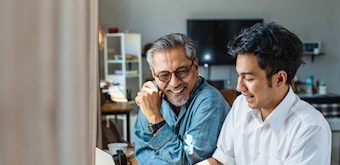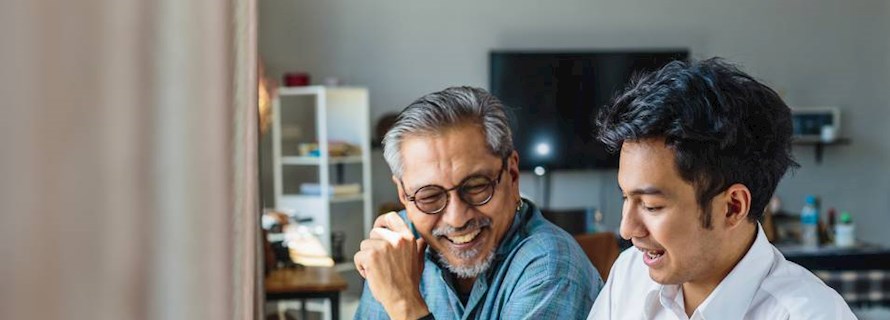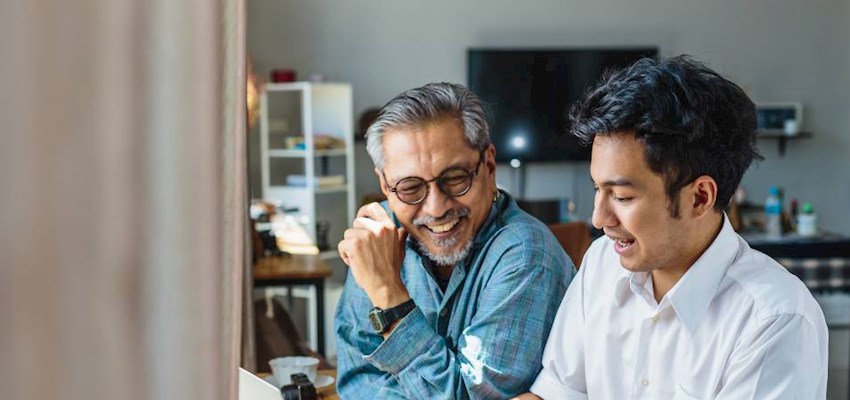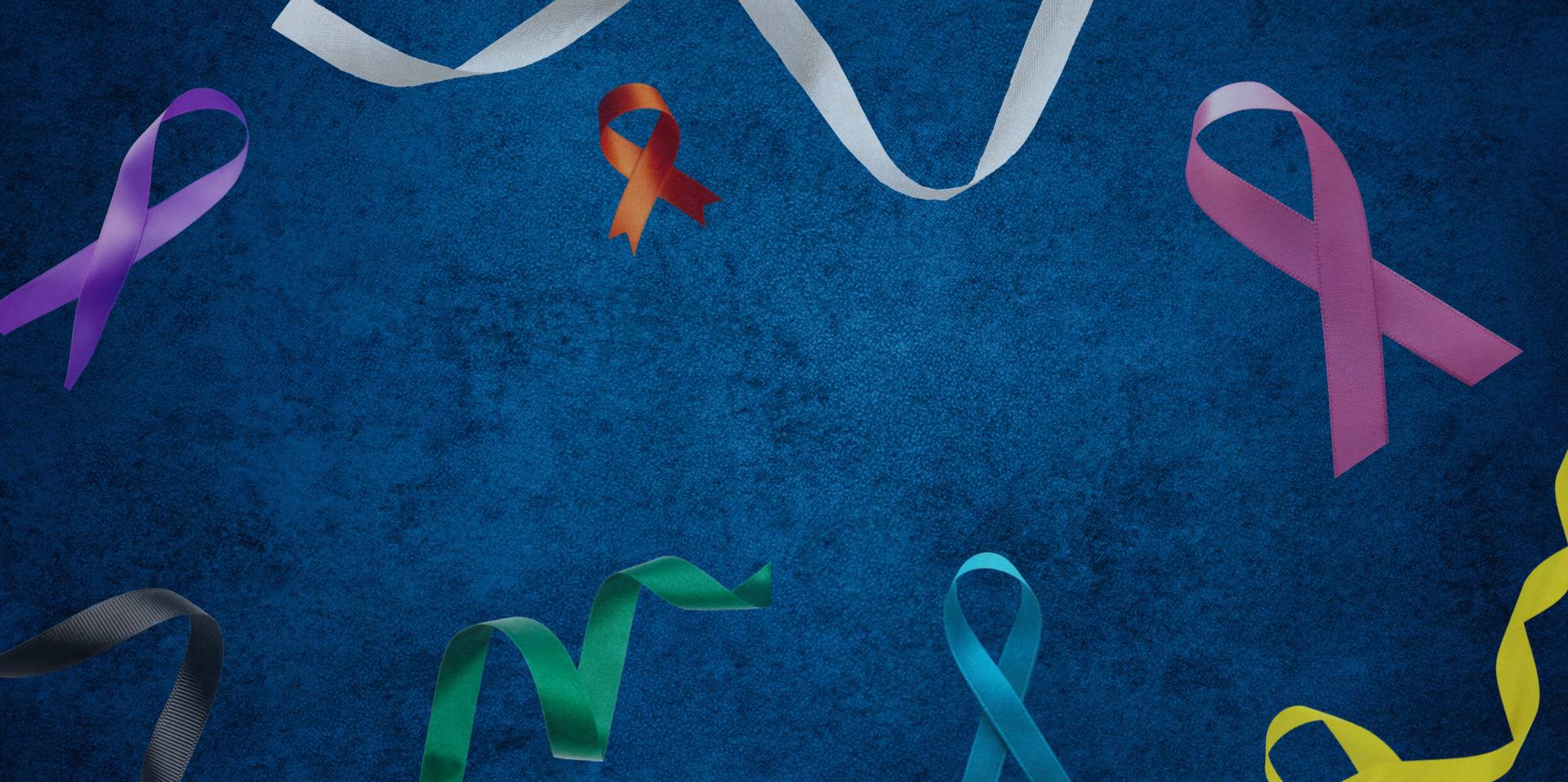But what is it like to survive cancer? For many, the anticipation of reaching this milestone, not just for patients, but for their families and loved ones too, can mean expectations of returning to normality which can be overwhelming.
We spoke to Rachel Byrne, co-founder of HCA Healthcare UK’s Wellbeing Space to find out more about the support available to people coming to the end of cancer treatment, as well as two cancer survivors, Kirsty and Paul, who share their experience of how the Wellbeing Space supported them.




The Wellbeing Space
As part of HCA Healthcare UK’s Wellbeing Space, Rachel Byrne and Dr Kate Harrison run a dedicated survivorship group for patients towards the end of, or following treatment for cancer. The group brings together a community of patients who are able to talk openly about their experiences and feelings, and provides practical support in coping with life after cancer treatment.
“Once treatment ends and patients get the all clear, they can feel an expectation in themselves and from the outside world to move on, it’s ‘over’. But the reality for many patients is that moving on, and going back to ‘normal’ can be much more difficult than expected and sometimes not possible, or even wanted.
That’s why we founded The Wellbeing Space. We know people can find it challenging, both emotionally and physically following treatment, and we’re really passionate about making sure our patients get all the support they need. These small and informal groups are facilitated by a clinical lead and a member of the psychology team. We invite expert guest speakers on topics such as diet and nutrition, exercise and mindfulness and coping strategies to offer practical support too.
But most often, our patients find the most helpful aspect of these groups is to hear from people going through a similar thing as them. It’s a community of cancer survivors sharing their stories and having supportive discussions.”
Two patients who have really benefited from the group are Kirsty and Paul, they share more about coming to the end of treatment and how the survivorship programme has supported them.
Kirsty's experience
“After nearly a year of treatment it can be overwhelming and a little bit daunting to find yourself running solo again. The incredible nursing staff, your oncologist, surgeon and radiotherapists have become your surrogate family: they 'get you' and what you are going through more than your own family. And then they are gone from your life.
And your friends and family celebrate you are through it all - time to move on and not look back! You're still alive and kicking - crack on with life! But they don't really understand the psychological and emotional turmoil cancer puts you in. We all know we're going to die one day but most of us merrily bumble along, fudging the bigger issues in life, not thinking beyond the weekly ups and downs.
But cancer makes you stare at it all. And chew on it all. And question everything. And that also means every little niggle and pain, every headache, bump and lump. Normal hiccups in health become harbingers of something worse coming back. And you try to level with yourself - you don't want to bore or burden your family and friends with 'that old chestnut' again - and so you bottle it all up.
But, like a wicked genie in the bottle, it all comes pouring out in the wee hours of the night. And there is nothing more dementing than those internal conversations you have with yourself when the rest of the world is asleep. It seems such a common thread amongst those of us on this journey - rollercoaster.
And Rachel and Kate and Matt and all the wonderful support team they have pulled together for us understand this. They have provided an extraordinary safe space to let out these emotions: to cry (a lot) and to laugh (even more!). Bucket loads of information, support, advice and tools for emotional healing - shared and delivered with generosity and kindness.
These few weeks we have spent together in real life - and in virtual rooms - have been the most lovely thing to look forward to. I have met women, fellow cancer sufferers, whom I applaud and have shared stories with - and oh my have we! And we continue to do so on our WhatsApp group - continue holding our 'weekly check-in' - and hopefully we will continue to be friends in real life once the world reopens.”
Paul's experience
“I had robotic surgery for Prostate Cancer which was the biggest shock of my life and I will never forget being told the news. After recovery I attended the 8-week course in January and I had reservations about signing up as I was not sure if the group thing would be for me.
How wrong I was. Yes, the first week, meeting people for the first time I was a bit tentative but I quickly realised that it was a safe place where I was with other men who knew exactly what I was feeling. It was a relief to know I was not alone and my thoughts, worries and anxieties were very normal.
I guess it took two or three weeks to establish trust but I started to look forward to the meetings every Thursday, and each week we had a different speaker on an important topic regarding wellbeing, including mindfulness and coping strategies which were very useful and informative.
We had three people who worked at The Christie Private Care, including a psychologist that facilitated the meetings each week and they helped lead the discussions in a very dignified and sensitive way. By the last session it felt like we were all friends and were talking very freely as if we had all known each other for many months or years.
The 8-week course was a big help as when you finish treatment you can feel a bit isolated and the ability to share your experiences is, I feel an important part of your recovery and it would be wonderful if one day every individual who has been through a life changing cancer experience had the opportunity to go on one of these courses.
I can give no higher praise than to say I will miss the course and having the opportunity to talk things over in a safe and calm environment. The 3 practitioners from The Christie Private Care who took the course, Rachel, Kate and Yasmin are people of the highest integrity and calibre and I thank them for all that they have done for me. I am also grateful to the other men in the group for sharing their experiences.
To anyone in the future thinking about going on one of these courses I would urge them to do what I did, put aside any apprehension, and give it a go. It may help you get through one of the most difficult periods of your life”.
How to access our Wellbeing Space
If you or anyone you know are struggling to adjust to life after cancer, or have been affected by cancer, you can contact Macmillan Cancer Support for help and advice.
